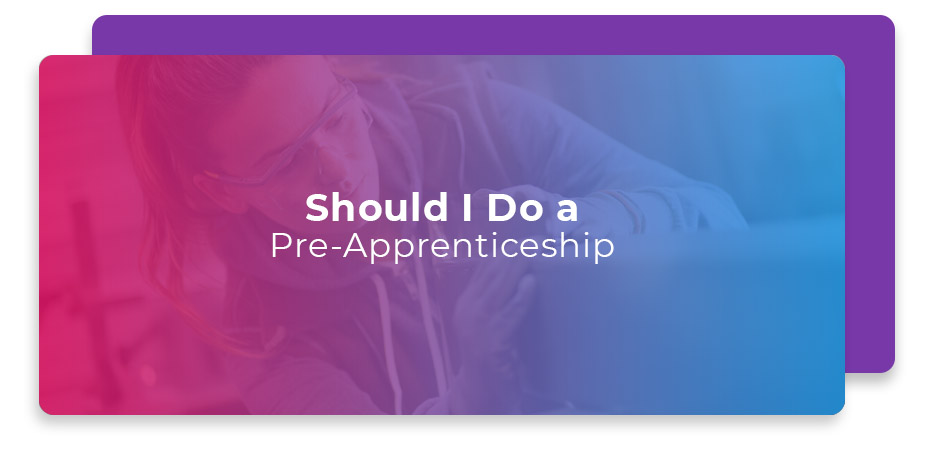“OMG, I got a phone interview!”
“Oh, no. I have a phone interview…”
If that was your reaction to scoring a phone interview, then we totally get it. Phone interviews can be nerve-wracking, in part because there is so much that can potentially get lost in translation. Did the interviewer seem satisfied with your answers? Did they smile at your joke, or did you just come across as a total jerk? It can be really difficult to tell one way or the other when you’re missing important nonverbal cues such as body language, facial expressions, and hand gestures.
Despite their anxiety-inducing nature, phone interviews aren’t all bad. After all, you get to have the interview in the comfort of your own home. Plus, you can have useful materials in front of you and jot down notes (or just doodle nervously — we won’t judge). But more importantly, scoring a phone interview means that you’re one step closer to landing an internship or getting your dream job!
The secret to crushing the call and impressing your hiring manager? Preparation — and lots of it. Below, we’ll briefly explain the purpose of phone interviews before diving into the best ways to prepare for the call.
The Purpose of Phone Interviews
It’s no secret that people under the age of 35 tend to dislike talking on the phone. So, why do some employers and colleges insist on conducting phone interviews?
It mostly comes down to convenience and necessity. Some employers may end up having far more qualified applicants than they can realistically interview. To narrow down their pool of applicants, they’ll use phone interviews to identify the top finalists.

During a phone interview, most employers have the following objectives:
- To confirm the applicant’s interest in the position.
- To make sure that you have the required skills they need.
- To assess cultural fit.
- To get a better idea of your expectations, especially on salary and benefits.
In college admissions, phone interviews are typically conducted by college representatives and former students. These interviews are slightly lower stakes in that your phone interview likely won’t make or break your chances of admission. Still, you should come into the interview with an idea of what college interview questions will be asked and how you want to answer them.
The main objectives of a college interview include:
- To get to know the applicant a little better, beyond their test scores and grades.
- To confirm the applicant’s interest in the college.
- To discuss the student’s educational and career goals.
- To answer questions about the college.
How to Prepare for a Phone Interview
Whether you’re trying to launch a career, land an internship, or get into your dream school, first impressions are everything. To get an offer letter, you’ll need to dazzle the interviewer and showcase yourself in the right light.
Before you hop on the phone, check out these pre-interview tips to make sure that you’re prepared and ready to impress.
1. Confirm the Details
You’ve just scheduled your phone interview. Woohoo! Before you forget all the details, start drafting an email to confirm your interview.
Confirming a phone interview through email is always a good idea because it ensures that everyone is on the same page with the time and the date. It also makes you look professional and shows that you respect the interviewer’s time.

Before the phone interview, you should know the following information:
- When the interviewer will be calling you (be sure to pay attention to the time zone!)
- Who will be calling you and what position they have
- The number the interviewer will be calling from
- The number they can reach you at
- Additional contact information in case the call drops
If any of this information wasn’t made clear in the initial call or email, don’t be afraid to ask the hiring team to spell it out for you.
2. Do Your Homework
This one is a no-brainer, right? Even if your phone interview is nothing more than a basic screening, it’s important to have a thorough understanding of the company. The last thing you want is to get cut from the next round of interviews because you accidentally revealed your ignorance about the company during the call.
Spend some time learning about the company prior to your phone interview. What do they do? Who are their competitors and target markets? Where is the company headed? Start thinking about where you might fit into the company and how you can add value.
BTW, you’re not doing all this research just so you can sound smart and enthusiastic on the call — it’s important information for you to know, too! Sure, the hiring manager is trying to find the best candidate, but you’re also trying to determine if the company is a good fit for you.

3. Find a Quiet Spot to Interview
The nice thing about phone interviews is that you don’t need to worry about the interviewer judging you on your appearance. The bad news? They’re definitely evaluating you on your ability to find a quiet spot to interview.
We get it. It’s not your fault that your dog randomly barks at cars or that your roommate likes to blast extremely loud death metal. But a noisy background is super distracting and can make it difficult for both you and the interviewer to connect with each other.
To reduce potential distractions, let everyone in your household know about the interview in advance and remind them again right before the interview is scheduled to begin. Pick a quiet room that is located away from the kitchen, the media room, and other noisy areas. Then, lock yourself in the room so nobody barges in during the interview.
If you’re still worried about potential noise, you can also sit in your car on a quiet street or book a conference room. Just be sure to scope out your options in advance so you’re not scrambling for a better location at the last minute.

4. Research Common Interview Questions
Don’t forget to prepare for questions you might be asked during your phone interview. Start by reaching out to people in your network who have worked or interviewed with the company in the past and ask them about potential interview questions.
If you don’t know anyone with connections to the company, don’t sweat it. There are other ways to get the inside scoop on the interview process. For instance, Glassdoor has interview questions and reviews that can give you a better idea of what will be asked in your interview.
If you’re interviewing for internships, you need to be prepared for a different set of questions. Be sure to check out our list of common internship interview questions and know how to answer them.
5. Be Prepared to Ask Thoughtful Questions
Speaking of questions, it’s important to ask a few questions of your own. Interviews are a two-way street!
Near the end of the phone call, the interviewer will usually ask if you have any questions for them. Be prepared with intelligent questions that can’t easily be Googled.

For example, here are a few key questions you might want to ask:
- What does a typical day look like in this role?
- Are there opportunities for advancement or professional development?
- How will my performance be measured?
- Where do you see this company in the next few years?
- Can you tell me a little about the team I’ll be working with?
These questions will give you valuable insight into the company. It also shows the hiring team that you’re engaged and interested in working for them.
6. Create a Cheat Sheet
Newsflash: Nobody is going to see you during a phone interview. Why not take advantage by making yourself a little cheat sheet that you can keep nearby during the call?
Cheat sheets are particularly useful if you’re worried about freezing up during your interview and forgetting key points that you want to get across to the interviewer. In fact, simply having your notes nearby can go a long way in making you feel more relaxed on the call.
A cheat sheet can include important notes, anecdotes, talking points, your resume — anything you want. When creating your document, refer back to the job description and type up talking points that help you demonstrate why you’re a good fit for the company.

7. Practice with a Mock Interview
Are your interview skills a little rusty? Participating in mock interviews (also known as practice interviews) is a great way to rehearse your answers and work out some of the kinks in your interview strategy before the call.
Stop by your school’s career center and ask if they offer phone mock interviews. Just be aware that they may record the phone call so you can listen to yourself afterwards. Although this may sound torturous, listening to yourself speak can be extremely effective at helping reduce those dreaded “ums” and “uhs” on a phone call.
If you’re not affiliated with a school, consider reaching out to a former boss, coworker, or mentor and asking if you could run your job experiences by them. This is a low-pressure way to practice your interview skills — plus, it’s an excellent opportunity to get back in touch.

8. Plan for Worst-Case Scenarios
You’ve practiced your answers to common interview questions. Your talking points are printed out and ready to go. Everything is going according to plan — until suddenly, it isn’t. The call drops. The interviewer forgets your interview. The call is dragging on and you didn’t book enough time for the conference room.
While these scenarios aren’t likely to happen, it’s a good idea to plan for them as much as you can. Be proactive by thinking about the most common worst-case scenarios and imagining how you might respond.
9. Set Up a Professional Voicemail
“Hello? Helloooo? Just kidding, this is my voicemail. Leave a message!”
Many of us have fallen for this classic voicemail prank before. One person who probably won’t be laughing: the hiring manager — or any recruiter that comes calling, for that matter.
Before your phone interview, go to a quiet room and set up a professional voicemail. Stick to a simple, “Hi, this is [your name]. I’m not available right now, but please leave your name and number and I’ll get back to you as soon as I can. Thanks!”
Also, don’t forget to regularly clear your voicemail messages to avoid a full inbox. Nothing is more frustrating to an interviewer than playing a game of phone tag with an applicant.
10. Get a Good Night’s Sleep
Feeling alert and refreshed on the day of your phone interview is incredibly important. If you’re groggy from a lack of sleep, the interviewer will likely be able to hear your exhaustion through the phone — not a great first impression!
To set yourself up for a great night’s sleep, turn off technology a few hours before you go to bed. Blue light from digital screens can mess with your circadian rhythm and keep you awake. Do a few meditative exercises before bed to help you relax and consider sipping on sleep-inducing drinks (Yogi’s Soothing Caramel Bedtime will knock you right out, FYI).
Additional Tips for Phone Interview Success
- Make your answers detailed, but brief. The interview should be a 50/50 exchange.
- Smile on the phone. While the interviewer can’t actually see you, smiling on the phone will make you sound warmer and friendlier.
- Keep your phone fully charged.
- Do not chew gum during the interview.
- Use headphones. It reduces background noise and will help the interviewer hear you better.
- Have a bottle of water nearby in case you need to clear your throat.
Wrapping Up
Phone interviews typically don’t take long — about 30 minutes or less, usually. But don’t let that fool you into thinking you can take the “wing it” approach. By knowing how to prepare for a phone interview, you can showcase your best side and make it to the next round of interviews.
Good luck!
.CTAbtn {text-decoration: none;font-weight: 700;font-size: .8rem; color: #fff !important; text-transform: uppercase;background:#7838a8;padding: 10px 35px;border-radius: 7px;display: table;margin: 0 auto;}.CTAbtn:hover {background:#5c2b82;color:#fff;}
If you’ve got tips for nailing a phone interview, share it with the Tallo Community! The Tallo Community is filled with students and professionals working together to get into their dream college or landing the perfect job. Join us!
Image Credits
- Prostock-studio/Shutterstock
- Aquarius Studio/Shutterstock
- aodaodaodaod/Shutterstock
- Alissa Kumarova/Shutterstock







